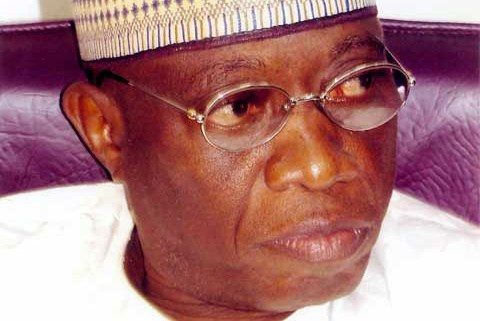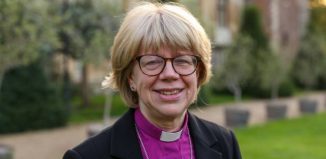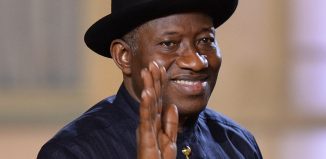By Olusegun Adeniyi
In November 1985, the Obafemi Awolowo University (then University of Ife) hosted the trio of the late Dele Giwa, Yakubu Mohammed and Ray Ekpu. On that day, the entire campus was in a frenzy as the celebrated journalists fielded questions from members of the association of campus journalists inside Oduduwa Hall. With Professor Wande Abimbola (‘Babalawo’) as our Vice Chancellor at that period, Ife was a place to dream. And if there was anything that the trio did that day, it was to inspire many of us into believing that journalism is a calling that can be both professionally fulfilling and financially rewarding if done the right way.
Going through the memoir of Mr Yakubu Mohammed, ‘Beyond Expectations’, a copy of which he graciously sent to me two weeks ago, I cannot but reflect on my own journey as a reporter and how people like him contributed in no small way to fire our imaginations.
With a Bachelor of Science degree in Mass Communication from the University of Lagos in 1975, Mohammed started his career at the ‘New Nigerian’ newspaper (which he had been freelancing for right from campus and had requested him for the NYSC primary assignment) same year. And he rose quickly to become the acting editor of one of the most influential newspapers in the country (if not the continent) at the time. While Mohammed heaps accolades on Mallams Turi Mohammed and Mamman Daura and a few others who helped to nurture his career progression, he also revealed the usual newsroom politics, including the one involving Mr Mohammed Haruna “who, much later, after intensive trials and tribulations powered by intrigue, rose to become managing director” of the newspaper. Mohammed had proposed Haruna to be his deputy, but it was Mallam Abba Dabo that was elevated instead.
At age 29 in February 1980, something fortuitous happened to Mohammed who was then Associate Editor, operating from Lagos (where the New Nigerian newspaper printed the southern edition). The late Bashorun M.K.O. Abiola visited his (Mohammed’s) Shomolu residence a week after Concord was launched to seek help. The printing press of National Concord had broken down in what Abiola suspected to be a deliberate act of sabotage by opponents. That night, Abiola asked whether Mohammed could get the New Nigerian press to publish for Concord at such short notice. “After hearing the publisher (Abiola) out, I jumped into one of their cars and led them to the Ijora office of the New Nigerian where, for five days in a row, the press staff printed National Concord,” Mohammed recounted. “The ease with which I mobilised the staff back to work that night, after they had closed and gone home to the warm embrace of their families, did not go unnoticed by the influential publisher and international business mogul.” Nine months later, Abiola returned to Mohammed’s apartment, again at night, to ask him to come and work for Concord.
At National Concord, Mohammed began as deputy to Mrs Doyin Abiola (nee Aboaba who died last month) before succeeding her when she was elevated to the position of Managing Director and Editor-in-Chief. The late Chief Duro Onabule (who would later be Chief Press Secretary to General Ibrahim Babangida) was appointed as Mohammed’s deputy.
Although Mohammed, Dele Giwa (editor of Sunday Concord at the time) as well as Ray Ekpu (who joined the Concord editorial board from Sunday Times where he was editor) would later leave to found NEWSWATCH magazine, he paints a vivid picture of what Concord meant to Abiola as well as the intrigues of the early days.
The late Abiola, who would have been 88 last Sunday had he been alive, invested so much time and resources in Concord and the journalists who worked for him. In the process, he elevated the status of Nigerian journalists. But like his other businesses, Concord did not survive Abiola’s political ordeal. And that is a tragic story on its own. Even as a latter-day employee of the media house that is now defunct, I can recall the late Abiola once saying, “of all the ways people describe me, the title I love the most is ‘Concord publisher.’”
But back to ‘Beyond Expectations’. Mohammed has written a most enjoyable and insightful memoir that is easy to read. The dramatic way he was arrested inside the government house in Lokoja by the late General Sani Abacha goons, the controversy arising from the death by letter bomb of Dele Giwa are a few of the interesting recalls. Just as he takes readers behind-the-scenes to the stories that defined a certain era in Nigeria. And not surprisingly, Mohammed offers insights into how NEWSWATCH magazine died. “When Ray (Ekpu), Dan (Agbese), Soji (Akinrinade) and I walked into the warm embrace of Barrister Jimoh Ibrahim, there was nothing to indicate to us that we were about to sign the death warrant of our company, NEWSWATCH Communications Limited,” Yakubu wrote in an account that reveals he still doesn’t understand why the man who is now a Senator from Ondo State acquired a newsmagazine he obviously did not need. “We did not anticipate that any fate worse than our 13-day ordeal in Abacha’s gulag would come our way again. But the calamity that befell us after a handshake with Jimoh Ibrahim was as painful as death.”
As to be expected from a veteran journalist, Mohammed’s memoir is a unique blend of personal narrative and professional experience. Simply by telling his own story, Mohammed provides a unique perspective on the challenges and rewards of being a journalist in Nigeria, especially up to the end of the 20th century. He also provides insights and reflections on some important stories he and colleagues covered, pivotal moments in the country, the people he met along the way, and the impact of his work not only at Concord but also at NEWSWATCH magazine. It is an interesting and informative read.
Well done, oga Yakubu Mohammed.



